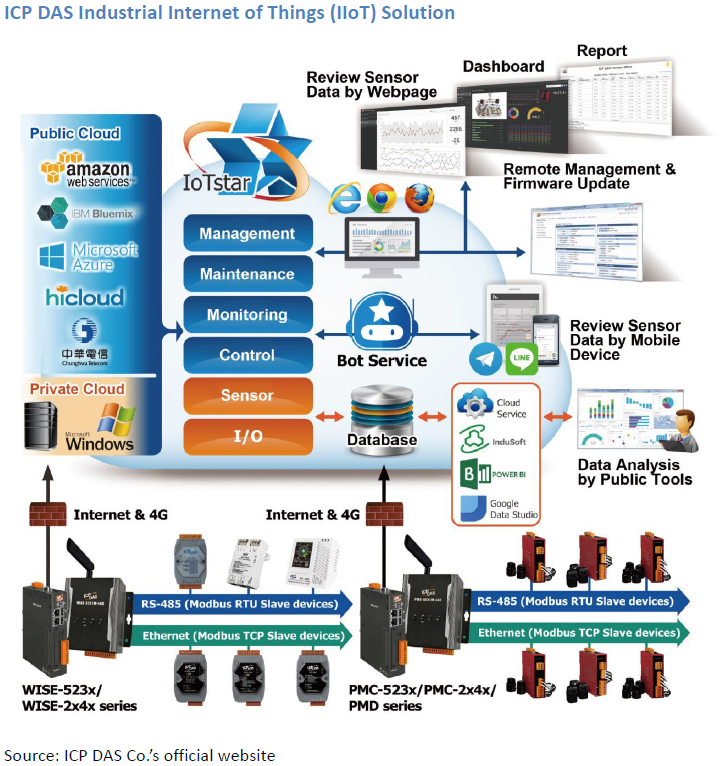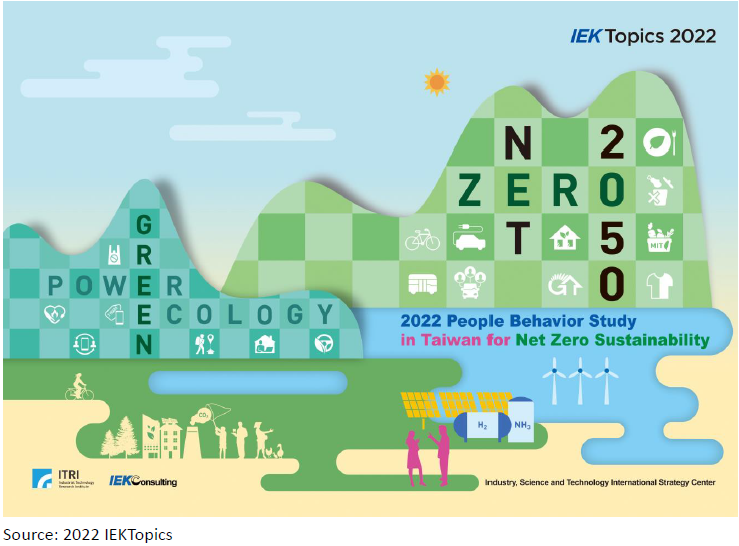The concept of net-zero carbon emissions continues tospread throughout the world. Low-carbon emission transportation means are gaining popularity, while low-carbon or zero-energy structures are becoming more common for homes and offices. People look for low carbon footprint certifications when selecting daily food and clothing and pay special attention to low-carbon related energy-saving methods when engaging in educational and recreational activities.
Building A ComprehensiveIntelligent Low-carbon Lifestyle Environment
ICP DAS Co. was founded in 1993 by its General Manager Chen Rui-yu, who worked at ITRI’s Mechanical and Mechatronics Systems Research Laboratories. Many members of the company’s management team are also from ITRI, making this a typical company founded by R&D talents. ICP DAS is committed to the development of remote IIoT technology and products in order to create an all-encompassing low-carbon lifestyle environment. The company seeks to provide complete industry automation solutions and after-sales services in different aspects of daily life. The following are a couple of application examples in food production, textile manufacturing, building energy-use management, traffic management, educationenvironments, and recreation locations.
ICP DAS deployed smart ICT technology at the production end to precisely calculate raw materials consumption in food production.At the smart farmhouse at Yunlin Waterfowl and Livestock Farm, ICP DAS improved overall feeding effectiveness by precisely controlling waterfowl feeding conditions with technology. The technology, which can immediately detect equipment failure, is also applied to freezer and refrigerator power management in chain restaurants to prevent food safety risks.
A textile factory in Vietnam uses ICP DAS’ energy management system and automated production equipment to monitor equipment uptime and cut down production line energy waste.
The energy consumption of a building’s residents/users can be optimized by integrating IoT into the building’s energy management system. ICP DAS installed pertinent systems and technology in a commercial building in Taichung City. The building’s generators, elevators, ventilation and fire-fighting equipment, and lighting and water transmission systems are connected to an automatic managing, control, and scheduling system so that the lighting and air conditioning facilities in some public spaces can be turned on and off automatically. This not only improves the living comfort of the building occupants but also decreases the frequency of manually switching on/off the equipment and therefore conserves energy and reduces carbon emissions.
Daily commutes and transportation are the concern of many people. ICP DAS deploys remotely controlled unit devices to transmit real-time statuses of electric buses(speed, motor rotating speed, vehicle status, battery data, daily mileage)to the Central Control Center through wireless communications. Additionally, the vehicle’s precise location is transmitted back to the Center and shown on a map, providing crucial information for fleet management and vehicle dispatch.The technology not only enables relevant personnel to constantly monitor and control traffic flow on the roads and manage them instantly but also reduces additional carbon emissions from idle vehicles stuck in heavy traffic.
ICP DAS also introduced energy-saving solutions onto campuses to help school administrators quickly understand the electricity usage of buildings, classrooms, and other power-consuming equipment on campus and manage them in real-time. In addition to enhancing campus power use efficiency, the new technology saves electricity costs and helps schools avoid being penalized for excessive electricity consumption.
The public space monitoring solution implemented at Kaohsiung Music Center is a customized solution by ICP DAS. It is a full central monitoring system that encompasses the front-end power meters, water supply and drainage systems, fire-fighting and public safety equipment as well as lighting infrastructure. Operators can set up a big data database with the acquired data for later use in in-depth analysis and management and remotely monitor every piece of equipment from the central control room. The solution also supports efficient energy consumption and carbon emission reduction with its full-building energy management system and integrated environmental energy-consuming equipment mechanism.
Further Promotion and Realization ofNet-zero/Zero-carbon Measures
The aforementioned application examples demonstrate the importance of IIoT technology in the development of low-carbon lifestyles since it can not only improve production performance and produce all types of daily necessities with optimal energy efficiency but also reduce the products’ carbon footprints. Through automated management technologies, we can create a comfortable living environment for the public and cut down energy waste at the same time.
In response to the rapid penetration of global ICT technology in various industries and the ongoing efforts to reach net-zero carbon emissions,ITRI has been investing in the R&D of IIoT-related technologies and is actively working on two major areas: green energy and environmental technology, and smart manufacturing. In the former area, ITRI integrated its cutting-edge environmental technologies to enhance the energy-saving capabilities within the IoT; and for smart manufacturing, ITRI combines machine learning and data-generating automation technologies to achieve the most efficient use of energy.
ITRI will continue to work with the IIoT industry and help businesses use energy efficiently to meet the global market's demand for net-zero carbon emissions and carbon management. The ultimate goal is to reduce 24 million tons of greenhouse gas emissions by 2030, speed up the process of achieving low-carbon or even zero-carbon emissions among Taiwan’s industries, and create a low-carbon lifestyle environment for the residents of Taiwan.



